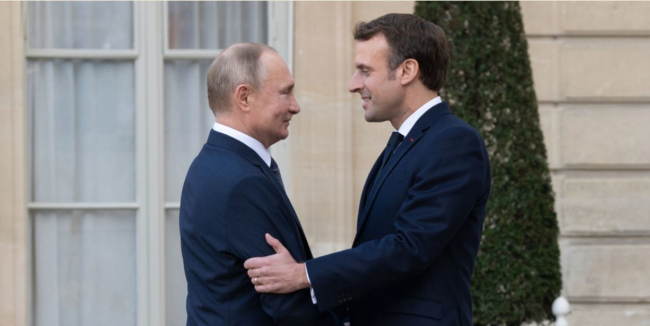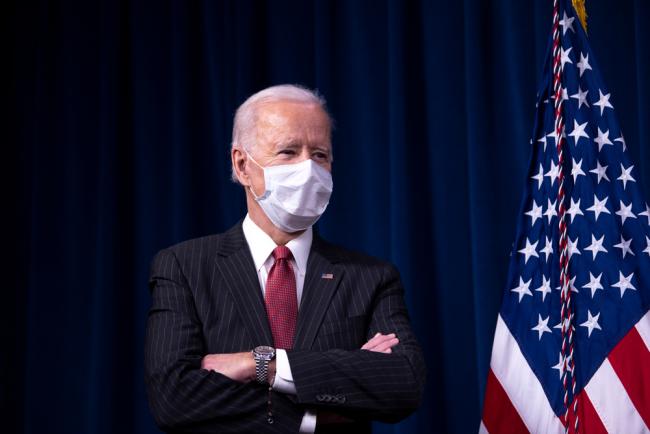Obama's Second Term: The Process of Building Global Leadership
The second term of Barack Obama’s presidency has introduced new Foreign Policy leadership that suggests changes for the future. The White House will likely centralize foreign policy making and the Treasury Department may play a bigger role in the country’s global engagement. Despite new policy direction, no framework for the strategic renewal of U.S. global leadership has emerged.
Les républicains et la politique étrangère américaine: quelles perspectives pour 2016 ?
The future candidates for the 2016 Republican presidential primary will be expected to develop a clear foreign policy agenda and prove the GOP’s credibility on foreign affairs issue.
The Future of the American Leadership: Between Renewal and Delegation
In an effort to preserve its global leadership, the United States has engaged in a “double rebalancing”; a geopolitical rebalancing, as illustrated by the “pivot to Asia,” and a rebalancing of means, with the Obama administration increasingly advancing diplomatic and economic negotiations (economic statecraft), emphasizing the indirect uses of military force and opening up reinforced dialogue with new actors.
The Obama Administration and Syria: From "off the table" to on
A quick look at the news dealing with the Syrian uprising the last year shows a slow progression from protests and civil resistance towards violence. The Obama Administration’s policy dealing with what many have called “slow motion revolution” has evolved in fits and starts, with mixed episodes of confusion, assertiveness, denial and drift.
One Year Before the Election: Countdown to a Second Term?
Ifri's December conferences have become a staple event for Europeans eager to understand the evolutions underway in the United States. For our tenth edition, we discussed the main specificities of the U.S. judiciary system and their impact on non-U.S. citizens and entities, the up-coming presidential elections, the economic situation of a country caught between the debt and a recession, and finally, the evolution of U.S. attitudes vis-a-vis the upheavals in the Arab and Muslim World.
U.S. Foreign Policy and the Israeli-Palestinian Conflict: A View from Palestine
How will the US respond to the changing Palestinian and Arab paradigm?
Beyond the Midterms: The Outlook for the Obama Administration
One month after the midterm elections, it was time to step back and reflect upon the state of affairs at the time and future direction of President Obama’s Administration and deal with which campaign promises might be achieved in the remaining years and how the political parties would rally for the 2012 elections.
Kremlin Is Top Destination For Spooked European Leaders
Rarely in recent years has the Kremlin been so popular with European visitors. French President Emmanuel Macron arrives Monday. The Hungarian prime minister visited last week. And in days to come, the German chancellor will be there, too. All are hoping to get through to President Vladimir Putin, the man who singlehandedly shapes Russia’s course amid its military buildup near Ukraine and whose designs are a mystery even for his own narrow inner circle.
The Biden administration in turmoil (video replay)
Celebrating its 20th edition, Ifri's Annual Conference on the United States convened a first panel on national politics and a second on the evolution of U.S. trade. An exchange between Thierry de Montbrial and Henry Kissinger, 56th Secretary of State, concluded the day. Videos of all interventions are below.
The Biden Administration: What Consequences for Allies? Views from Japan and France
The US allies greeted the election of Joe Biden with relief, but also with expectations.
Support independent French research
Ifri, a foundation recognized as being of public utility, relies largely on private donors – companies and individuals – to guarantee its sustainability and intellectual independence. Through their funding, donors help maintain the Institute's position among the world's leading think tanks. By benefiting from an internationally recognized network and expertise, donors refine their understanding of geopolitical risk and its consequences on global politics and the economy. In 2025, Ifri supports more than 80 French and foreign companies and organizations.











